The hand life deals - You are holding on too tight...
Many people think that life threatening situations will make you radically change your life, this is because the media is full of inflated stories of people who almost died and after experiencing that went on to living a dream life. In a way this “die to live” propaganda is good as it gives people hope that something better is possible for them but it is also bad as people just keep on waiting for something to happen to them before they start changing their lives.
Most people never start changing their lives for better, not even the ones who had a near fatal experience. We all keep telling ourselves that one day life will change, we will change, we will begin to live our dreams. But we don’t…
We always find some excuse why we can’t start living our lives yet.
In fact when you go through a life threatening situation it can be even harder to change your life than it was before.
Think about it, how many people each day experience a near fatal car crash, assault or medical complication?
And how many of those actually end up changing their lives for better?
Very, very few.
The routine we live week after week is rooted deep within our psyche. Our minds rebell at the thought of drastically changing our lives. Our primal brain perceives routines as safe and changes dangerous, hence they strive to keep things as they are. We keep saying “one day, one day” yet we keep letting life slip by. We keep living a life of quiet desperation
Every hand’s a winner just like every hand’s a loser
This subtitle is a quote from a song titled ‘The gambler’ and it beautifully depicts the chances we have in life.
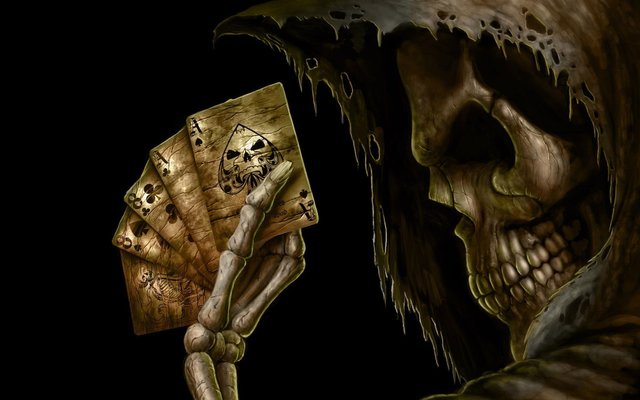
The hand life deals… is sometimes perceived as a cynical quote but it is a pretty accurate description of the random attributes and events we receive in life.
Personally, i was born with a good average hand. Everything on the world could be available to me if i played my hand right. A few months later - before i could even check my cards - life dealt me one more card. This was a wildcard which nearly killed me and completely ruined my average hand.
My earliest memories are of people around me talking to each other how miserable, pathetic and short my life is destined to be. Yet i lived for long enough to learn that cards themselves do not create the outcome, it’s how you play them that does.
Even the worst hand can turn into the winning combination.
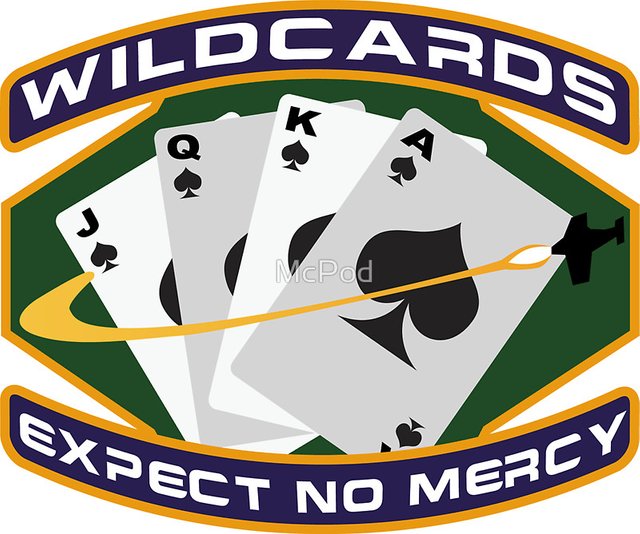
Our cards and our fear of death
I never found a way to turn my wildcard into an asset but as life dealt new cards i learned to play around it. Internet for example was a card which opened many possibilities for me. Of course arrival of the internet was a great thing for many people, but many also failed to adapt to it and consequently lost their livelihood - internet was a bad card for them.
The way you adapt to your cards is the key to living the life you want but it is not easy to see where your current actions will take you. As Steve Jobs said, it is difficult to connect the dots to see where you are going but it is easy to connect them looking backwards.
Because of this uncertainty we are often unwilling to change our routines because we are not certain whether they will have a good or bad impact on the course of our life. As even small deviations can cause our lives to end in a disaster years down the line, our brains keep us frozen solid in our established ways. We fear what could happen, often purely subconsciously without ever being aware of it.
Our fear of dying before we reach our dreams causes this aversion to change we have. And experiencing a deadly situation can further solidify the fear our primitive brain hold on to. Thus we keep persisting in our usual ways and hoping for things to change.
Some even see this as a virtue, after all, the mainstream society preaches never risking - and walking the beaten path for your entire life. But the mainstream population is not living their dreams, is it?
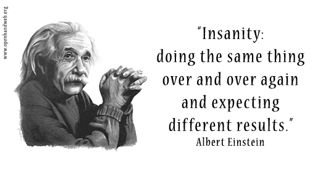
As children and adolescents, most tend to rebel against those “safe” social ideas. They want to live life on their own terms and not listen to some “bitter old folk’s” lamentations. This phase lasts from a few months to a few years, then we “mature” and see the “error” of our ways.
At this point we tend to frown on those who come into that phase after us, and we tend to frown and be ashamed of the things we did. We give in to fear and social conditioning. We become tame and stuck in mundane routines.
We hold on to sure bets with minimal rewards… We watch our life pass by day after day, as we desperately cling to the rat race and the socially acceptable way of life. We even preach to others how they should be “mature” and “responsible”, all the while we regret not having a better life.
Yet opportunity after opportunity we pass the chance for a better life because we see it as being too risky. Even when we hold good cards we are afraid to make a move because there are too many variables. As time passes life deals us new cards and our once good hand gets diluted. Sure, life eventually deals us a new OK hand, yet again we fail to gamble on it.
Should our rebellious younger selves see us, they’d likely die from shame… How many of us are living lives we didn’t even consider worth living in our adolescent years? Back then we would likely gamble everything we now have for even a small chance of scoring it big. But now… we are just too afraid.
The failed logic of near fatal experiences
People think that this fear is mitigated after a near-death experience as we realize how short and fleeting our life is. But for most people this logic is highly flawed - the near-death experience often serves our crock brain to solidify its belief in playing it safe. This is because it can give us the impression that we cannot control life, that we are merely an observer. Sometimes that is true, other times we have created our misfortune. Either way, the way we react to what happens determines our future yet we usually just fail to react...
I remember quite a few times in my life when i was sure i was about to die. The earliest event was before i was even a teenager. Back then life was simple and we had no grand expectations, so - as strange as it may seem - dying didn’t seem such a big deal. Needless to say i did not change the way i lived
As young teenagers we already have a hint of many things we have not lived through yet. And for this dying suddenly becomes a bigger disappointment. Yet still at that age we do not realize the potential we have, thus we either do nothing or become obsessively risk averse which can ruin all our chances later in life.
Fast forward a few more years to late teen years and dying is strange… depending on how you lived, how you live now and what your prospects are for the future, dying can be a dreaded or even a welcome event. In those years most people do not often think of dying and their mortality and those who do experience a near death event seemingly quickly recover from it. Of course this does not mean such events don’t have an impact on our lives, on the contrary, it is at that age that we are the quickest to make changes.
Let us now skip to our 20’s and examine our life. This is the time our lives are the busiest, and for many most exciting. But this is also the time of most uncertainty and fear. We are in the process of creating our future and the way we will live till our dying day. It is at ths time that every chance we take or pass has the highest impact on our future. Well-meaning yet disillusioned elders tell us to ”be wise and do the right thing; don’t be foolish!”... We start to take ourselves so seriously, believing no risk is worthy…
Beyond our 20’s people have some responsibilities and still think no risk is worthy. They inflate the responsibilities they have like they singlehandedly support the foundations Earth lies upon. When they graze death they fall upon their responsibilities even harder, in a desperate attempt to create an illusion of stability and continuity in our existence.
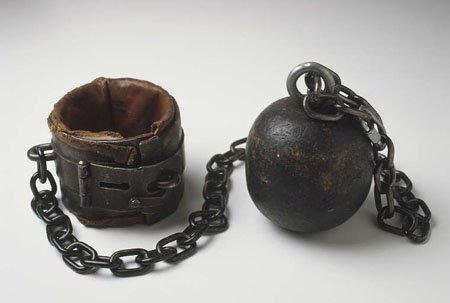
We take ourselves so seriously that we don’t bet on our cards even when we hold a truly good hand. This by default causes us to lose.
Our regrets
Why do we lose if we play it safe?
Because we die full of regrets.
When you will be dying do you think you will regret all the “crazy” things you did do?
No, the dying regret things they didn’t do; and i’m not talking about the report they didn’t finish, the book they didn’t read and the movie they didn’t see… It’s the place they didn’t visit, the stunt they never tried, the business they never started, the person they never loved…
They say the cemetery is the richest place on the planet - full of unrealized potential and unlived dreams
But your dreams and desires do not need to be engraved on your tombstone like a shopping list.
If you have more than a few months left to live you can turn around now and start running with the things you want to do.
Think about what you would regret not having accomplished if you were to die tomorrow. I know how hard it can be to find a way in spite of all the “responsibilities” we have, but the pain of regret is far bigger than that.
When the time comes you can say:
a.) Fuck; no… i didn’t…
b.) It’s ok. I’ve done ok
c.) Yeah, I’ve lived WELL
I’ve been with a) for far too long, it’s time to grab a chainsaw and cut the responsibilities that shackle me.
What about you? Will you just quietly return to the routine?
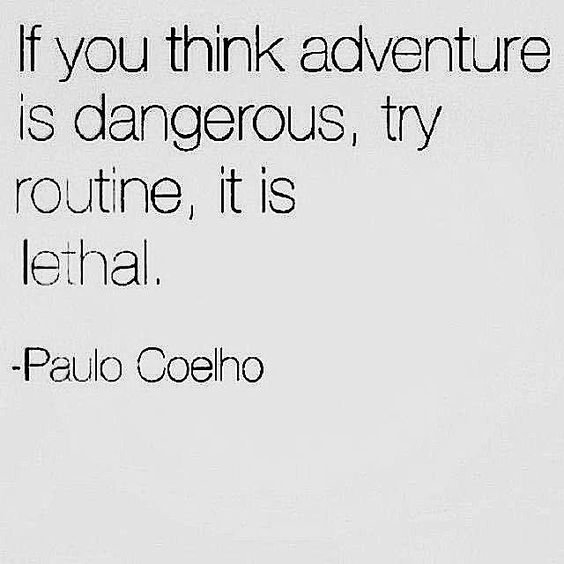
Article background: I made this article because my heart (physically) reminded me that despite my multiple near-death experiences i have not changed my life. I didn’t just dream like i will live forever, i also lived like it - passing every opportunity.
So writing this article served me for reflecting on How’s and Why’s of life. It is my personal view on this topic and not an established psychological/philosophical school of thought
All photos were found in google search. All rights belong to the owning websites referenced below.
Sources:
Referencing an URL boosts it higher in popular SERPS so referencing an URL is a positive thing for the owner of the referenced site.
Linked content is for convenience only and is not mine.
i agree with you in many things . For me dying is not the real fear , my biggest fear is loosing the people i love . The definition of a good living depends from human to human but learn how to deal with bad cards is what makes life a great challenge ! Besides that and at the age of 38 as we talk , i prefer to feel blessed for the things that i have in my life ... i loved your article and thank you for your effort :)